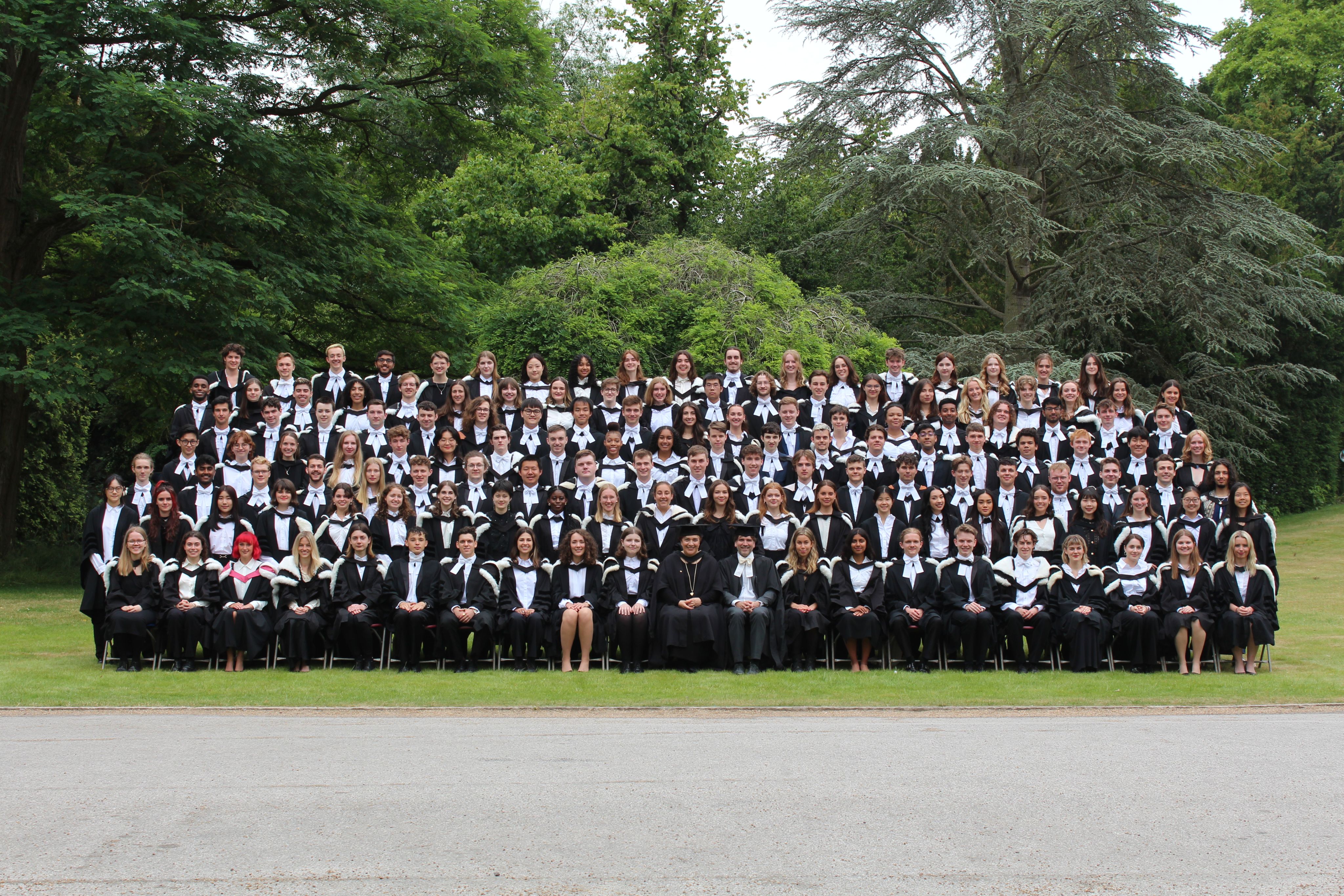Senior Tutor's Report
Dr Jacqueline Tasioulas

This year had promised to be a return to normality after the disruptions of the previous two, and to a certain extent it lived up to that promise. All students were fully back in residence and almost all teaching took place in person from Michaelmas onwards. The normal rhythms of the year were resumed, and it was good to see the students making the most of College life. Our graduating third year were our COVID generation: those whose A-level assessments had to be abandoned and who joined us under social-distancing restrictions. With that in mind, we were determined to have the Hall back in time for the Lady Clare Dinner. However, General Admission was affected in other ways, with not all of our students knowing their degree class. A year of intermittent strike action by some lecturers culminated in a marking and assessment boycott, and while most final year students had degrees conferred on the day of General Admission, some remained unclassed. There was, nevertheless, a ceremony in the Senate House for all students, and a celebration of everything that this cohort has achieved in their three eventful years in Cambridge.
Graduations have, indeed, been the focus of much College activity this year. The College saw eight of them, as we caught up on ceremonies that had been delayed by the pandemic. In total, 392 students made the trip to the Senate House in person, many of them postgraduate students who returned from various parts of the globe for their long-awaited conferrals.
At the other end of the Cambridge process, the Admissions round was once again conducted online but the College’s outreach and recruitment work with schools has combined in-person visits with online sessions. Thirty-one schools visited the College in the course of the year, bringing with them more than eight hundred children. Two teachers’ conferences were held and hundreds of sixth formers joined the annual online subject taster event. In addition, the College’s online interview support event reached a record number of state-school applicants to Cambridge. It was also good to see the residential programmes taking place again, the first since 2019. One of these was the STEM SMART programme, aimed at supporting applicants to Cambridge in STEM subjects; the second residential formed part of ‘Cambridge Future Museum Voices’, the College’s major new collaborative outreach programme with the University Museum of Zoology, aimed at sixth formers from less advantaged backgrounds.
A number of new appointments have helped to fill our teaching needs. These will be outlined by the Fellowship Registrar in his report, so I need only say here how good it is to see a new cohort of Fellows so committed to engaging with students. As for student life more generally, it continues to be supported by the Forbes Mellon Library. Study habits appear to have changed over the last few years, possibly due to the pandemic, and loan statistics indicate increased use of e-books and other digital resources. The Archives Team has been engaged in a large project to reorganise the layout of the College’s historical records in order to make it quicker and easier to find the material required to respond to enquiries. Two other major projects have recently been completed: an index of entries in the College’s Admissions Registers from 1900 to 1950, and release of a new publicly available Archives catalogue . In addition, the Librarian has worked tirelessly with the College Buildings Department to ensure the safe return of the books to the Fellows’ Library, all of which had been removed during the restoration of the building.
Meanwhile, the Health & Wellbeing Service has continued to care not just for our own students but, exceptionally this year due to the war in Ukraine, the wider University community. With support from a generous College donor, it was instrumental in setting up counselling provision for Ukrainian arrivals within the University and providing ongoing support.
